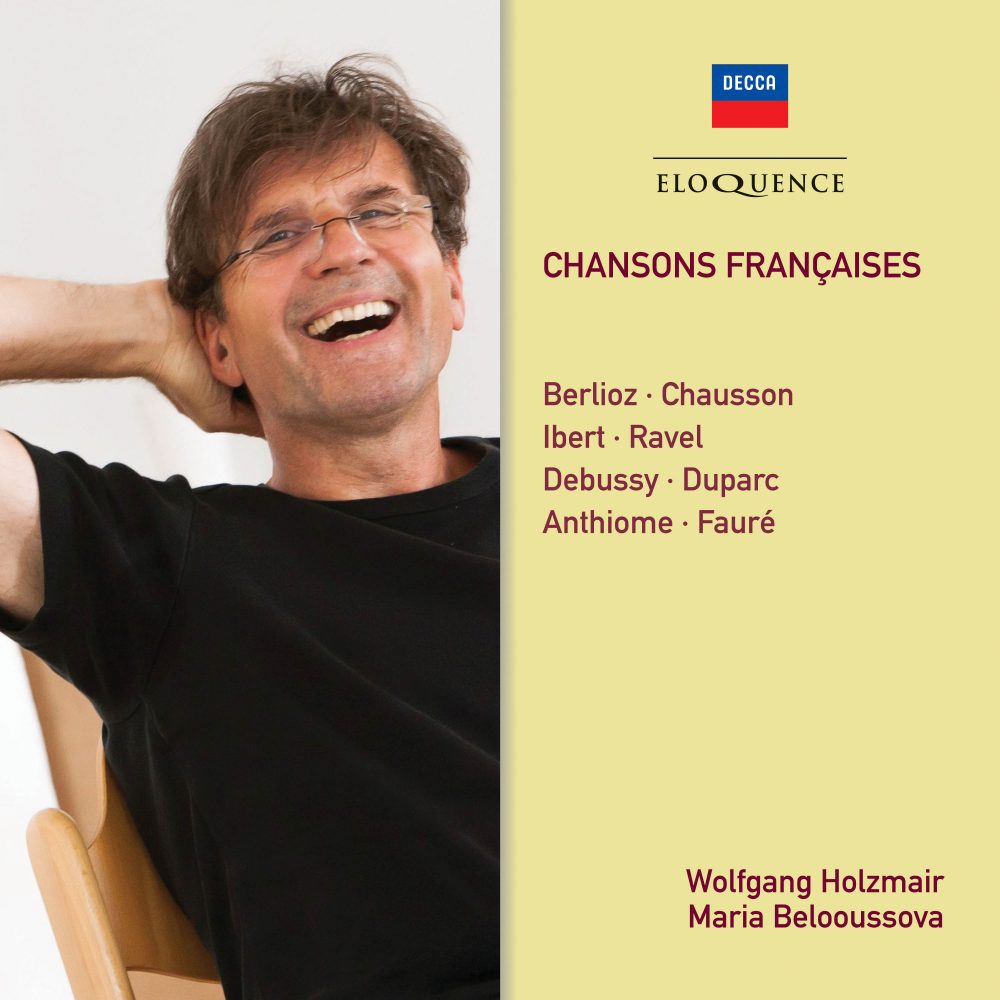A BRAND NEW RECORDING FROM WOLFGANG HOLZMAIR.
‘For me,’ Wolfgang Holzmair once remarked, ‘the song is a continuation of speech – a higher form of expressing words and thoughts.’ Over the course of three decades, the Austrian baritone has been true to his own belief in a stream of recitals and recordings of the Lieder, chanson and art-song repertoire. As recently as 2012, his album of Mahler’s songs from ‘Des knaben Wunderhorn’ was welcomed in Gramophone for his superb word-painting, ‘replacing sheer vocal power with more Lieder-friendly qualities of agility, precision and nuance. Poetic narrative is everywhere apparent.’
Such qualities lend distinction to his brand new album of ‘Chansons françaises’ released on Eloquence. Recorded in Vienna in 2012, Holzmair is partnered here by the Russian pianist Maria Belooussova who specialised in chamber-music partnerships with renowned instrumentalists and singers, among them Ivry Gitlis and Joseph Silverstein. Holzmair’s personal selection focuses on the high-noon of the French art-song tradition in the latter half of the nineteenth century and early decades of the twentieth, moving between the exquisite melancholy of Théophile Gautier as set by Berlioz (in ‘Les Nuits d’été’) and Duparc and the pastis-dry wit of Alexandre Arnoux who found his musical match in Jacques Ibert (‘Chansons de Don Quichotte’).
Holzmair also encompasses the visionary sensibility of Faure in ‘L’Horizon chimérique’, the sinuous opulence of Ernest Chausson (setting Gautier again in ‘Les Papillons’) and the folky simplicity of the’ Trois chansons de France’ by Debussy. Alongside an undoubted high-point in the entire French song repertoire (Ravel’s last completed work, ‘Don Quichotte à Dulcinée’), Holzmair has also unearthed a genuine rarity in the person of Eugène Anthiome (1836–1916) whose two songs recorded here for the first time belong to the Parisian salon, sweet and suave in the manner of Reynaldo Hahn.
HECTOR BERLIOZ
Three songs from ‘Les Nuits d’été’
ERNEST CHAUSSON
Le Colibri
Les Papillons
Sérénade Italienne
JACQUES IBERT
Chanson à Dulcinée (Chansons de Don Quichotte)
MAURICE RAVEL
Don Quichotte à Dulcinée
JACQUES IBERT
Chanson de la mort (Chansons de Don Quichotte)
CLAUDE DEBUSSY
Deux romances sur la poésie de Paul Bourget
Trois chansons de France
HENRI DUPARC
Phidylé
Lamento
La vie antérieure
Deux melodies
EUGÈNE ANTHIOME
Deux melodies
GABRIEL FAURÉ
Les Berceaux
L’Horizon chimérique, Op. 118
Wolfgang Holzmair, baritone
Maria Belooussova, piano
NEW RECORDINGS OF FRENCH SONGS
Executive Producer: Vincent Piron
Balance Engineer: Alexander Grün (Studio Tonal, Vienna)
Recording Location: Studio Tonal, Vienna, Austria, 29 March–1 April 2012

